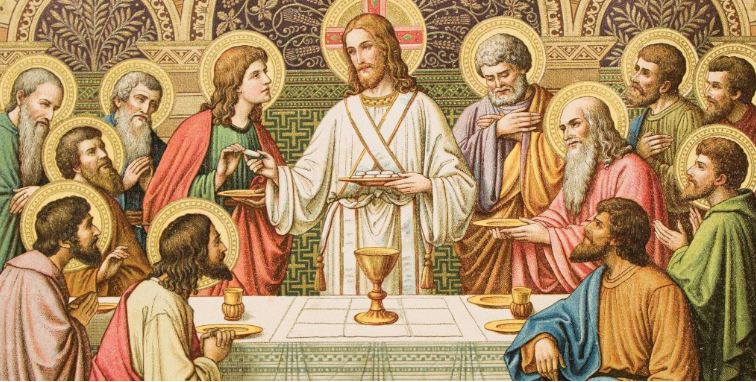Dear Friends, let’s talk about Forgiveness, what it is not and some misconceptions about forgiveness.
As a complex and often misunderstood concept, I have chosen to focus to explore and clarify what forgiveness is not, as misconceptions can lead to confusion and hinder the process of healing.
What is forgiveness?
Forgiveness is a complex and profound act of releasing feelings of resentment, anger, and the desire for revenge toward someone who has wronged you. It involves letting go of the negative emotions associated with a hurtful event and choosing to move forward with a sense of compassion and understanding. Forgiveness is freeing yourself from the emotional burden that can hold you back from healing and personal growth. It is not always easy, especially when the hurt is deep. However, forgiveness is important to us as Christians because God in Christ forgave us first and has asked us to forgive those who hurt us.
Below are some bible verses that highlights the divine model of forgiveness that God extends to us and the call for us to embody this forgiveness in our interactions with others. These verses lay a strong foundation for the next part of this writeup: exploring what forgiveness is not, helping us navigate the complexities of this vital aspect of human relationships and spiritual growth.
“Be kind and compassionate to one another, forgiving each other, just as in Christ God forgave you.” (Ephesians 4:32 NIV)
“For if you forgive other people when they sin against you, your heavenly Father will also forgive you. But if you do not forgive others their sins, your Father will not forgive your sins.” (Matthew 6:14-15 NIV)
“Bear with each other and forgive one another if any of you has a grievance against someone. Forgive as the Lord forgave you.” (Colossians 3:13 NIV)
“And when you stand praying, if you hold anything against anyone, forgive them, so that your Father in heaven may forgive you your sins.” (Mark 11:25 NIV)
“He does not treat us as our sins deserve or repay us according to our iniquities. For as high as the heavens are above the earth, so great is his love for those who fear him; as far as the east is from the west, so far has he removed our transgressions from us.” (Psalm 103:10-12 NIV)
“Who is a God like you, who pardons sin and forgives the transgression of the remnant of his inheritance? You do not stay angry forever but delight to show mercy. You will again have compassion on us; you will tread our sins underfoot and hurl all our iniquities into the depths of the sea.” (Micah 7:18-19 NIV)
“Then Peter came to Jesus and asked, ‘Lord, how many times shall I forgive my brother or sister who sins against me? Up to seven times?’ Jesus answered, ‘I tell you, not seven times, but seventy-seven times.'” (Matthew 18:21-22 NIV)
“On the contrary: ‘If your enemy is hungry, feed him; if he is thirsty, give him something to drink. In doing this, you will heap burning coals on his head.’ Do not be overcome by evil, but overcome evil with good.” (Romans 12:20-21 NIV)
Now, let us delve deeper into the misconceptions surrounding forgiveness so that we may gain a clearer understanding of its true essence.
Forgiveness is not forgetting:
Forgiveness doesn’t mean erasing the memory of the hurtful event from your mind. You can still remember what happened while choosing to release the negative emotions associated with it.
Forgiveness is not excusing:
Forgiving someone doesn’t mean that you’re justifying or condoning their actions. It doesn’t erase the fact that a wrongdoing occurred.
Forgiveness is not reconciliation:
Forgiveness and reconciliation are related but distinct. Forgiveness is a personal choice to let go of resentment, while reconciliation involves rebuilding trust and potentially resuming a relationship. You can forgive someone without necessarily reconciling with them, especially if the relationship is unhealthy or unsafe.
Forgiveness is not a one-time event:
Forgiveness is often a process that takes time. It might involve revisiting your feelings, working through residual emotions, and choosing to forgive repeatedly as new emotions arise.
Forgiveness is not dependent on an apology:
While receiving an apology can facilitate the process of forgiveness, you don’t need an apology from the person who hurt you in order to forgive them. Forgiveness is more about your emotional well-being than their acknowledgment of their actions.
Forgiveness is not denying your feelings:
Forgiveness doesn’t mean denying or suppressing your feelings of anger, hurt, or betrayal. It’s about acknowledging these emotions and choosing to work through them in a healthy way.
Forgiveness is not a sign of weakness:
Some people might perceive forgiveness as a sign of weakness or capitulation. On the contrary, forgiveness requires strength and courage to confront and process painful emotions.
Forgiveness is not a transaction:
Forgiveness is not about “letting someone off the hook” in exchange for something. It’s a personal choice that benefits your emotional well-being.
Forgiveness is not about others’ opinions:
The decision to forgive is ultimately yours. It’s not about what others think you should do or whether they believe the offender deserves forgiveness.
Forgiveness is not immediate or easy:
Forgiveness can be a challenging process, especially for deep wounds. It’s okay if it takes time, and it’s normal to experience setbacks along the way.
I hope that understanding the above 10 misconceptions about forgiveness can help you approach the process with clarity and a healthier perspective. Remember, forgiveness of others and yourself is a personal journey that requires self-awareness, self-compassion, and a willingness to let go of emotional burdens that can hinder your well-being.
Happy Forgiveness 🤩
– Fr. James Anyaegbu






This is a well detailed explanation of forgiveness. Thanks for taking your time to put this together. God bless
Above all forgiveness is living Christ-like life.
Thank you Fr.
A wonderful article. Thank you Fr James!
Beautifully analysed! Thank you, Father.